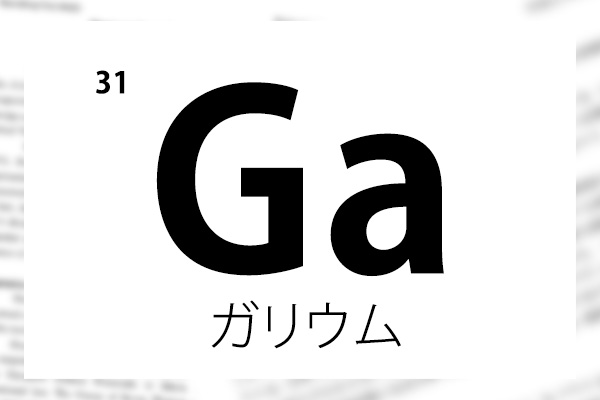China is deploying countermeasures over semiconductors, which are the main battleground of the US-China confrontation. After banning the procurement of products from Micron Technology Inc., a major U.S. semiconductor company, in May, China made gallium and germanium, which can be semiconductor materials, subject to export licensing requirements from August. The purpose is to put pressure on the United States and other countries.
The U.S. launched restrictions on semiconductor exports to China in October last year and is further enhancing the restrictions. Japan for its part toughened export controls on advanced semiconductor manufacturing equipment from July 23. The Netherlands is scheduled to take similar measure in September. China intends to jab at these movements.
Beware of anxiety-inflaming media reports
We should not overreact but accurately grasp the facts.
First, China has made gallium and germanium subject to “export controls” instead of "export restrictions." We should monitor whether export controls could be operated in an untransparent manner. Media reports describing the Chinese measure as "export restrictions" represent a mistake that stems from a lack of understanding of the export control system. Similar thing happened when Japan tightened export controls on South Korea four years ago. Then, media reports overreacted to the Japanese measure, warning that it would be "a major blow to semiconductor supply chains." Media reports inflame anxiety beyond necessity also this time, by describing the latest Chinese measure as causing “confusion in semiconductor supply chains.” It may play into China’s hands.
Second, we must not be misled by superficial dependence on China. China accounts for more than 90% of global gallium production and nearly 70% of global germanium production. However, it is premature to base any judgment based on production shares alone. As for gallium, imports from China account for about 40% of Japan's consumption, totaling only 50 tons. Recycled gallium is abundant, capturing about 40% of consumption. In addition, relevant companies have secured sufficient inventories.
It is also wrong to describe gallium and germanium as "rare metal." Gallium is a by-product from the production of aluminum and other metals and can be supplied from alternative sources in case of need. It is by no means "rare.” As for germanium, the U.S. ranks first in terms of deposits, outdoing China. U.S. deposits have yet to be mined so much.
Japan depends on gallium and germanium supply from China only because production costs are low under loose environmental regulations. Even if their prices soar in the short term due to the Chinese latest measure, it is possible to phase out such dependence on China over a longer term.
Third, gallium and germanium are also misunderstood as key semiconductor materials. It is wrong to describe them as “materials required for semiconduction production.” Gallium is one of the materials for next-generation “power semiconductors.” Power semiconductors represent a category of semiconductors used for energy-saving power control. Next-generation power semiconductors are being developed, using gallium nitride that can reduce power loss more significantly than silicon as a traditional material. From the perspective of the entire semiconductor industry, the amount of gallium used is small, and most of it is used in LED (light-emitting diodes) and other applications. Therefore, media reports warning "possible confusion in semiconductor supply chains” are clearly an overreaction.
Advanced technology information leaks should be a matter of concern
An issue to be concerned about is somewhere else. By making gallium subject to export controls, China will examine the final use and final users of the material when application for export license is made. Through this process, China will obtain information concerning advanced technologies for next-generation power semiconductors. How much information should be disclosed is a matter of much greater importance.
The media overlooks such issue. In response to China's pressure, it is important to have an attitude of “rightly concerned,” instead of overreacting to superficial figures.
Masahiko Hosokawa is a professor at Meisei University and a former director-general of the Trade Control Department at Japan’s Ministry of Economy, Trade and Industry. He is also a Planning Committee member at the Japan Institute for National Fundamentals.


